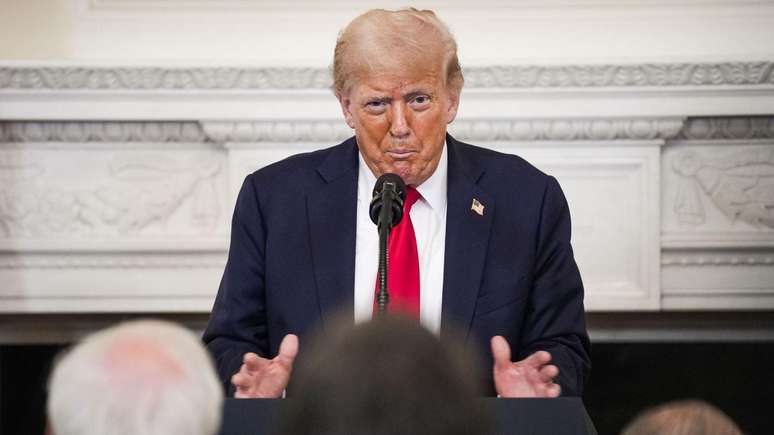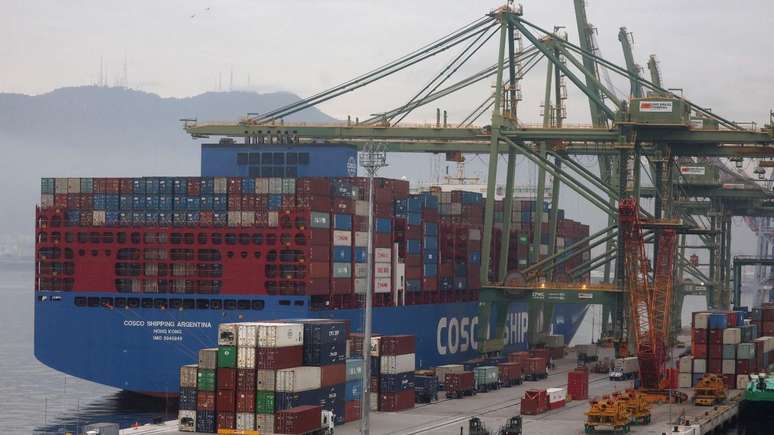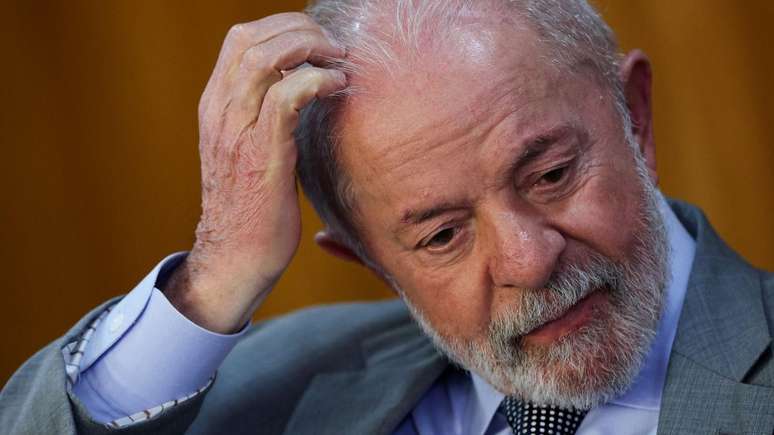Lula has signed a decree that regulates the law that can be used to take revenge on the United States by 50% tariff compared to Brazilian products.
President Luiz Inacio Lula da Silva (PT) signed, on Monday (14/7), the decree that regulates the law of economic reciprocity.
The law was approved in April and its regulation occurs less than a week after the President of the United States Donald Trump has announced 50% of rates on Brazilian products.
The decree establishes in which cases and how the Brazilian government can take revenge on measures such as those imposed by Trump last week.
The text describes in detail the “criteria for the suspension of commercial concessions, investments and obligations regarding intellectual property rights in response to the unilateral measures adopted by the country or by the economic blocking that negatively affect the Brazilian international competitiveness”.
The elaboration of the decree that regulates the law was one of the first steps taken by the Brazilian government after the announcement of the Trump rates.
The American announced the rates on Wednesday (9/7) through a post on its social networks.
In the post, Trump published a letter addressed to Lula in which he connects 50% rates to any Brazilian product to the treatment that the former president Jair Bolsonaro (PL) is having the Brazilian judiciary.
Bolsonaro is a defendant in a case of the Federal Supreme Court (STF) for presumably guided an attempt at a coup d’état to prevent Lula from entering in office as president in 2023.
Bolsonaro, however, denies the accusations. Trump, in turn, ranked the cause in which Bolsonaro is a defendant in the Supreme Court (Stf) as a “witch hunt” and said that the process of the former president “could not happen”.
The government reacted and, by note, said that “Brazil is a sovereign country with independent institutions that will not accept to be protected by anyone”.
In the interviews, Lula said that the government could use the law on economic reciprocity to react to Trump rates.
Officially, the Brazilian government has not yet established that the sectors and the way in which Brazil will respond to the US measures, but the regulation of the decree has been seen as necessary for the government to have “ammunition” to react from August 1, from which, according to Trump, the tariffs to Brazilian products will come into force.
The law of economic reciprocity was approved by a large majority at the national congress, in an unusual movement of the government benches and opposition that in recent years have increasingly voted in the same direction.
What does the law say?
According to the project approved to the congress and sanctioned by the president, the law on economic reciprocity can be used in three circumstances.
The first occurs when a country or economic block threatens or impose unilaterally, commercial, financial or investment barriers to interfere with the “sovereign” decisions of Brazil.
A practical example of this would be the Trump rates conditioned by the progress of a cause against a Brazilian citizen – in this case, Jair Bolsonaro.
The second possibility of using the law is whether a country or economic block violates the terms of a commercial agreement with Brazil, damaging the country’s and Brazilian companies.
The third possibility is the imposition of commercial measures based on environmental requirements more restrictive than those provided for by Brazilian law.
A practical example would be to prevent the purchase of goods The Brazilian farms produced in the Cerrado or the Amazon according to Brazilian environmental standards for reasons of environmental standards of the country or the blocking of buyers would have been violated by Brazilian producers.
If this requirement is unilateral and not based on multilateral agreements and has a negative impact on the export of Brazilian products, Brazil could consider it a measurable retaliation pursuant to this law.

What are the government weapons?
The decree signed Monday (14/7) also lists the mechanisms that the government must react to rates.
The main tool is the imposition of rates on imports of goods or services imported from the country that have started the tariff war.
By decree, Brazil can apply additional or supplement rates to specific products. The idea is to make them more expensive and, consequently, less competitive in the Brazilian market.
The government has not yet defined which sectors will be the objective of this type of mechanism.
One of the concerns is that, according to diplomats listened to by BBC News Brasil, not superimposed on products whose increase in prices can affect sectors of the Brazilian industry.
This measure is one of those that the government evaluates as more likely to be used in the short term.
The idea, according to government members, is that it is put into practice against sectors such as the pharmacist or audiovisual.
In practice, this measure does not like the costs of the products for Brazil, but allows, for example, that Brazilian factories can produce medicines that have their formula protected from patents.
The third mechanism is the possibility that Brazil does not respect the conditions of commercial agreements signed with the country or the “aggressor” block.
This would have an impact on the import or export shares previously agreed between the parties.

An eye for an eye a tooth for a tooth?
Although it was baptized as a “law of economic reciprocity”, the decree that regulated the text has maintained the idea that its application should not satisfy the “Eye for A Eye, Tooth” way.
The law, for example, establishes that the imposition of the retaliation measures should “minimize the impact on economic activity and prevent costs and administrative costs”.
This determination is the result of the concern of the government and the congress that the rates against certain imported products can end up damaging the production chains already installed in Brazil which depend on these inputs for the production of goods or services in the country.
The decree also provides for the passages for the adoption of retaliation.
The first will be the formation of committees to evaluate the case and the participation of public consultations with the representatives of the interested parties.
In practice, the government has already started this phase by instituting a commission with entrepreneurs of different sectors to discuss the government’s response.
In the decree signed by President Lula, the group that evaluates the case is called the “Interministerial Committee for economic and commercial trading and counter -commission”.
It is chaired by the Minister of Development, Industry, Commerce and Services (also vice -president Geraldo Alfine) and has the participation of the ministries of the Civil Chamber, Farm and Foreign Affairs.
Brazilian countermeasures will also be evaluated by the Chamber of Foreign Commerce (Camex), where there will be the participation of the representatives of the Public Administration and the private sectors of the economy.
The second phase provides for the stipulation deadlines for the analysis of the requests sent by the sectors consulted.
The third step is the suggestion and implementation of the measures, with any consultation and diplomatic negotiation.
The decree also provides that the executive power is authorized to re -evaluate the retaliation while the government performs previous passages.
The text also provides that the government should establish a retaliation monitoring committee and can revoke or modify them based on current diplomatic negotiations.
Source: Terra
Rose James is a Gossipify movie and series reviewer known for her in-depth analysis and unique perspective on the latest releases. With a background in film studies, she provides engaging and informative reviews, and keeps readers up to date with industry trends and emerging talents.







